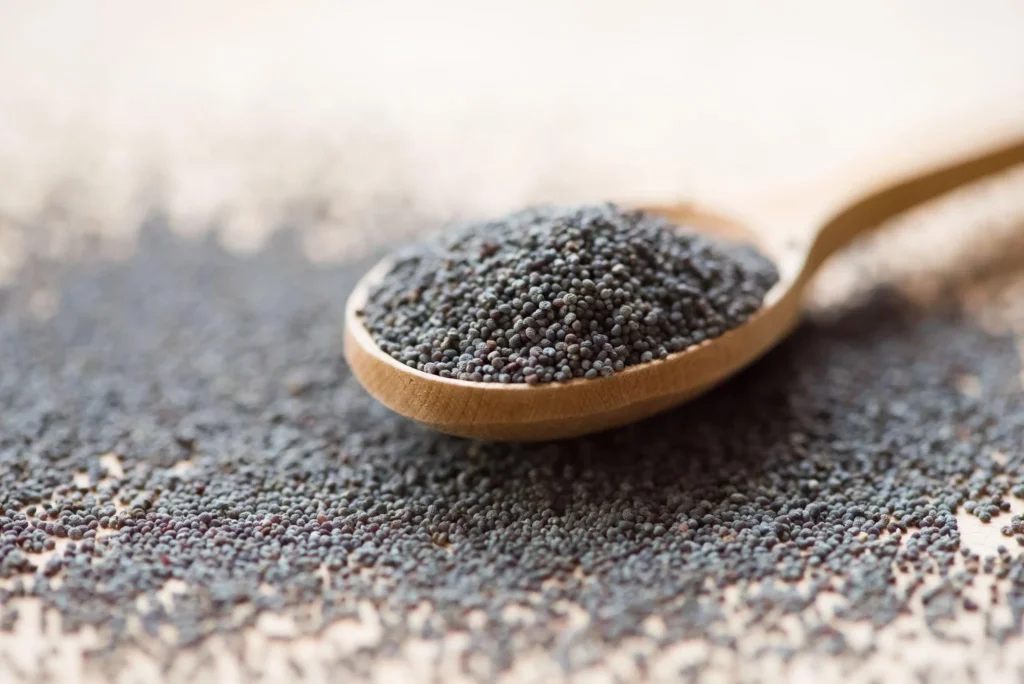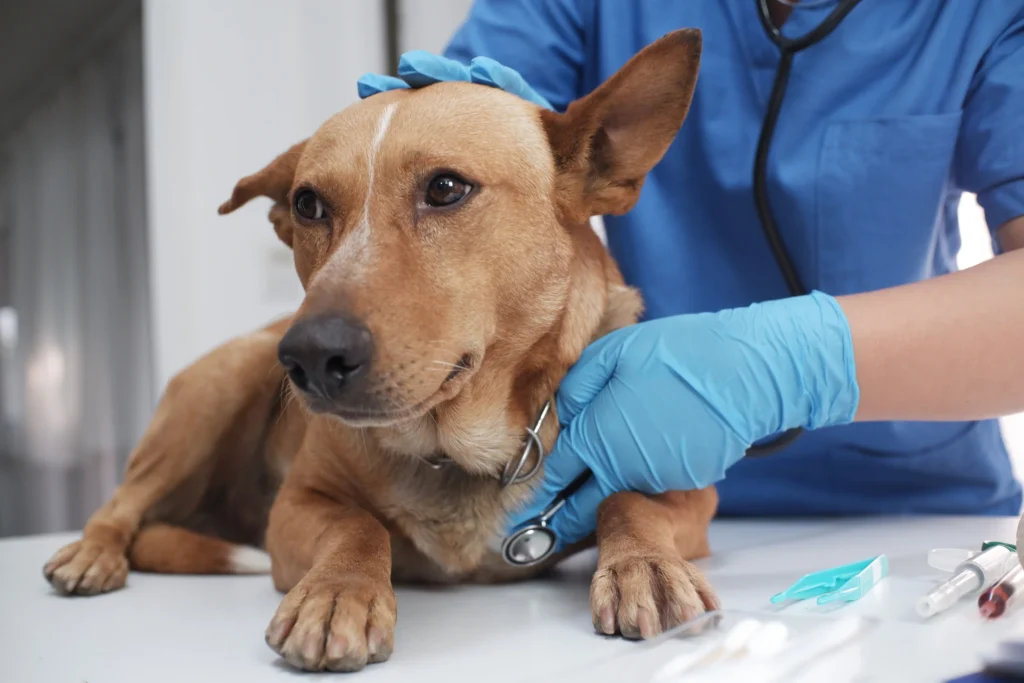Unless you’re an ardent dog lover, you know that’s what dog owners usually do, sharing snacks with our fur buddies, and not all human foods are good for them. Of course we want to know if dogs can eat poppy seeds without worrying. Tiny seeds that are often baked into baked goods and other foods we may enjoy are a real risk to dogs’ health. To identify the risks posed by poppy seeds and know signs of toxicity of your pet, you have to first understand the dangers. In this article we will delve into the risks, levels of toxicity, and safer alternatives to help you be informed.
Why You Should Be Cautious About Poppy Seeds and Dogs
You might think poppy seeds are harmless, but for dogs, those slightly crispy, round white treasures are poisonous. The alkaloids in poppies can cause adverse reactions in dogs because they can’t break down poppy seeds in their digestive system. Because of this, these compounds may affect your dog’s neurological and physiological systems resulting in a variety of symptoms from mild discomfort to life threatening.
Since there’s potential for poppy seed toxicity to be serious, pet owners need to pay close attention. If your dog ingests food such as muffins or bagels with poppy seeds, it can be accidental and your dog can choke or die. The more you incorporate these things into why poppy seeds are dangerous to dogs, the better you will be prepared to prevent your dog from accidentally ingesting them and ensure that your dog stays safe and healthy.
Understanding Poppy Seeds and Dogs
What Are Poppy Seeds?

The opium poppy plant (Papaver somniferum) is native to regions in Europe and Asia and its horn flowers are called poppy seeds. These kernel are kidney shaped small seeds with nutty flavors and are widely used in human food as a kernel in baking. You normally find them on bagels, muffins, breads, pastries, salad dressing and sauces. Humans consume poppy seeds both for the texture and taste they provide, but the plants that grow such seeds also produce opiates, which have well known effects on the nervous system.
Poppy seeds themselves contain very little poppy plant opiate content, although they may contain a trace amount of toxic compounds. Small amounts of this alkaloid in food are normally safe in humans, but dogs are highly sensitized toward alkaloids in poppies and even these trace amounts are risky.
Are Poppy Seeds Safe for Dogs?
The bad news is that poppy seeds are not safe for dogs. Although they don’t taste particularly bad (in my opinion), poppy seeds do contain alkaloids such as morphine and codeine, which is toxic to dogs even in small amounts. Affects on a dog’s central nervous system can result in mild to severe symptoms that can quickly escalate. Ingestion of these chemicals is far more dangerous for dogs than they are for humans; symptoms include lethargy, tremors, seizures, or even coma.
This all being said, you don’t want to give any foods with the poppy seed to your dog because of the potential dangers. Instead, look for healthy and tasty pet safe snacks.
Why Are Poppy Seeds Dangerous for Dogs?
The Toxic Compounds in Poppy Seeds
Alkaloids such as morphine and codeine contained within poppy seeds are a type of compound that can easily affect the functioning of the central nervous system. While these alkaloids are the same types of substances that can be found in pain-relief medications for humans, they are very toxic for dogs. These compounds are toxic even at small amounts and dogs metabolize them differently.
After being ingested, the alkaloids in poppy seeds start to take their toll on a dog’s neurological system, resulting in a variety of symptoms depending on how much has been consumed. The reason why dog owners need to stay away from any food product containing poppy seeds is that dog have a sensitivity to alkaloids.
How Poppy Seed Toxicity Affects Dogs’ Health
Poppy seeds contain the alkaloids, which, when a dog ingests them, may disrupt normal neurological function. The symptoms of this disruption are often excessive drooling, lethargy and vomiting. The toxicity rises to tremors, breathing problems, and seizures in more serious cases. While predicted effects on the central nervous system are unpredictable, if you suspect your dog has eaten poppy seeds, then you must continually monitor them closely.
Early treatment is often needed given the possibility of serious health problems. Whilst symptoms may be mild initially they can become worse, as such early intervention is essential.
Recognizing Poppy Seed Poisoning in Dogs
Early Signs of Poppy Seed Toxicity

If mild toxicity occurs, there may be drooling, lethargy and stomach upset syndrome. You’ll notice your dog looks unusually tired or doesn’t seem interested in eating. Often these early signs of a stomach bug are accompanied by vomiting or diarrhea. If you think your dog ate some poppy seeds, keep on eye out for these symptoms, and make your dog as comfortable as possible.
Knowing these early signs can be very important as mild symptoms can escalate quickly if untreated. By acting quickly and watching your dog’s behavior, you can stop this toxicity from escalating.
Advanced Symptoms of Poppy Poisoning
Further down the line with the toxicity, more obvious symptoms may present themselves, such as tremors, having trouble breathing, and seizures. These are advanced symptom of the poppy seed alkaloid’s effect on the CNS. Untreated poppy seed poisoning can result in coma and possibly death.
If your dog exhibits any of the more advanced symptoms, get emergency veterinary care right away. If you’re dealing with severe poisoning, time is of the essence and a vet can stabilize your dog just enough to start treatment.
What to Do If Your Dog Eats Poppy Seeds
Immediate Steps to Take
Assess the quantity of poppy seeds your dog has consumed, as first. However, if only a small amount is ingested, watch your dog for signs of toxicity. Make sure that there are no more poppy seeds or foods containing them to have in reach of your dog. Don’t induce vomiting unless your veterinarian advises you to. In some cases this can add to the complications.
Therefore, while monitoring, I make sure that your dog stays calm and comfortable. But keep them hydrated, and don’t administer any additional food until they’ve had symptoms evaluated by a professional.
When to Call the Vet
Contact your veterinarian if symptoms like drooling, lethargy, vomiting occur. If your dog has severe symptoms, like tremors or seizures, then you need to get them to a veterinarian right away. The vet should be able to describe how much poppy seeds were ingested and what the symptoms are to help them know what to do about the treatment.
If this is really toxic, you need to seek emergency services right away. The time of quick action can mean the difference in life or death for your dog.
Diagnosing Poppy Poisoning in Dogs
How Vets Confirm Poppy Seed Ingestion

Symptom evaluation, physical exams, and diagnostic tests are combined to diagnose poppy seed ingestion by a veterinarian. These are blood tests and toxicology screenings because they show if there are abnormal levels of toxins in the bloodstream. They help the vet get a picture of how bad the poisoning is and plan the right treatment.
A neurological exam is also viewed for neurological symptoms including tremors or an abnormal reflexes. This assessment is used to see how much of the toxicity is hurting your dog’s health.
What to Expect During Diagnosis
To diagnose your dog’s poppy seed alkaloid poisoning, you’ll likely have blood tests and toxicology screenings done to confirm its presence in your dog’s system. A detailed examination, and these tests, help the veterinarian understand the toxicity’s full impact. The results of these tests as well as the severity of symptoms can decide treatment options.
You’ll need to be ready for costs if you’re diagnosed and treated. The expense varies, but timely and accurate diagnosis is the key to maintaining toxicity under control.
Treatment Options for Poppy Poisoning
Veterinary Treatments for Poppy Seed Toxicity
Veterinary intervention is crucial if your dog has had a toxic amount of poppy seeds. Treatment typically involves supportive care, including giving your dog intravenous (IV) fluids to prevent dehydration, and to help the fats, proteins and other substances pass out of the body. If the severity depends on, a vet can also induce vomiting, or use activated charcoal, to prevent absorption of any remaining alkaloids.
Dogs can also have medications to treat symptoms such as tremors or seizures, and will need oxygen support when their breathing is hampered. Treatment goal is to stabilize the condition of your dog and correct pathological changes in the central nervous system due to toxicity of the substance.
Home Care After Veterinary Treatment
After your dog is discharged you need to create a calm stress free environment at home that helps recovery. The vet will give you suggestions for how to follow any dietary or medication instructions that are given for him or her. During recovery, your dog will need rest and gentle foods on their stomach. They also want to make sure they stay hydrated and watch for any recurring symptoms.
In the days after treatment, watch your dog closely. Some effects of toxicity hang around, so contact the vet if you ever notice anything unusual or out of thin usual regarding your cat’s behavior or symptoms. Your dog will regain strength if they are given a comfortable, safe place to recover.
Prevention: How to Keep Your Dog Safe from Poppy Seeds
Identifying Common Foods with Poppy Seeds
You can only avoid the accidental ingestion of poppy seeds by your dog if you know what these foods are. Baked goods, which include bagels, muffins, and certain kinds of bread, have their tops or surfaces covered in poppy seeds. Poppy seeds are also used to garnish salads, in dressings, and other desserts. With this awareness, you will not inadvertently put them in front of your dog.
Any human food for your dog should always be checked for its ingredients that may contain poppy seeds or any harmful components. You should not feed your dog snacks that contain poppy seeds, even in small amounts because they are hazardous to health.
Dog-Proofing Your Home Against Harmful Foods
This will involve not giving them foods with poppy seeds and other harmful ingredients. Ensure that all food is locked away in safely sealed cabinets or containers your dog cannot reach. Teaching your dog to stay off the counters will help him avoid any possible dangers related to edible substances.
Keep the environment free from dogs, and try to reinforce the boundaries to keep human food away because by doing this, you may prevent accidental exposure to these seeds. Prevention is the best medicine for your dog staying away from food-based poisons.
Safe, Dog-Friendly Alternatives to Poppy Seeds
Exploring Dog-Safe Seeds and Treats
In the event that you want healthier options, there are quite a number of dog-friendly seeds. Some of these seeds have no negative implications from poppy seeds but also possess a variety of health benefits. Flaxseeds and chia seeds contain high amounts of omega-3 fatty acids and fiber that help your dog’s coat, skin, and digestive system. It is however important to feed the seeds in moderate proportions so as not to disrupt your dog’s digestive tract.
Sprinkle these safe seeds in minimal quantities over your dog’s normal food or mix in small amounts into homemade treat food. You can introduce new food into your dog gradually since that will help you realize your dog can adapt well to these new introductions.
Rewarding Dogs with Safe Human Foods
However, seeds are not the only dog-friendly treats you can feed your pet. You can share small pieces of fruits and vegetables with them. For instance, you may give them a few blueberries, baby carrots, or apple slices minus seeds. These provide needed vitamins and minerals and add variety and nutritional value as well.
Reward your dog by providing treats containing non-toxic ingredients to help ensure they have the balance needed in their diets. Through this, one gets a chance to be free of health risks usually given by poppy seeds during snacking with his pet.
Frequently Asked Questions
Can dogs eat poppy seed muffins in small amounts?
No, in a small amount, poppy seed muffin is poisonous for your dog as it contains some harmful alkaloids against them and can easily affect the central nervous system. Therefore, you must avoid giving poppy seed muffins or any other foods with poppy seeds for your dog.
How quickly do symptoms of poppy toxicity appear?
Symptoms of poppy toxicity can appear within a few hours of ingestion, depending on the amount consumed and your dog’s size. Early signs may include drooling, lethargy, and vomiting, while severe symptoms like tremors and seizures can develop if not treated promptly.
Is it possible for dogs to develop immunity to poppy seeds?
No, dogs do not develop immunity to poppy seeds. The toxic alkaloids in poppies can affect a dog each time they are consumed, with potentially severe health consequences. It’s essential to prevent all forms of poppy ingestion to avoid poisoning.
Are other types of poppy plants dangerous to dogs?
Yes, all parts of the poppy plant, including flowers and seeds from various poppy species, contain toxic alkaloids harmful to dogs. Dogs should be kept away from poppy plants in gardens or wild areas to prevent accidental ingestion.
What foods can dogs safely eat?
Dogs can safely enjoy a range of human foods, including plain cooked meats, certain vegetables (like carrots and green beans), and some fruits (like apples and blueberries). Always avoid foods known to be toxic, such as chocolate, onions, and grapes.
What should I do if I suspect my dog ate a food containing poppy seeds?
If you suspect your dog has consumed poppy seeds, monitor them closely for symptoms. Contact your veterinarian immediately if you notice signs of toxicity, such as lethargy, vomiting, or tremors. Prompt veterinary care can significantly improve outcomes.
Understanding Canine Nutrition and Common Toxic Foods
Why Dogs Can’t Eat Certain Human Foods
Dogs have strange nutritional requirements that are vastly different from those of human beings, and this is why most human foods can be poisonous to them. Foods such as chocolate, onions, and grapes have compounds that dogs cannot metabolize safely. Similarly, alkaloids contained in poppy seeds are tolerated by human beings but cause poisoning in dogs.
Knowing these dietary restrictions will keep your dog safe. Once you understand common food toxins, you are prepared to make informed decisions on behalf of your pet’s health.
Components of a Healthy Canine Diet
In maintaining a balanced canine diet, there is the presence of protein, healthy fats, vitamins, and minerals. Protein is essential for providing muscles, while fats produce energy and support a coat. Dogs require specific vitamin and mineral supplements to their body systems in order for such systems to be at a peak level. Feeding your dog these nutrient-laden foods, along with good-quality commercial dog foods, will help keep it healthy and active.
Such prevention of dietary-related health problems will ensure a healthier, productive life for the dog through a well-balanced diet and the avoidance of harmful foods.
Final Thoughts
Summing Up: Can Dogs Eat Poppy Seeds?
In conclusion, dogs are not allowed to consume poppy seeds. Alkaloids in the seeds prove to be highly toxic towards a dog’s central nervous system and cause serious cases of symptoms to extreme lethal conditions. Understand the associated risks and ensure proper caution to prevent the dog’s accidental poisoning.
Keeping Your Dog Safe with Informed Food Choices
This means that you begin by making the right choice about your dog’s diet. Keep your pet safe and happy by avoiding food items such as poppy seeds and giving them only the best nutritious alternatives. Remember to always check the ingredient list and make sure the potentially harmful food is out of reach. A balanced and safe diet will take care of your dog’s well-being and keep you from facing emergencies with food toxicity.







